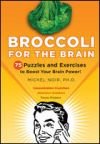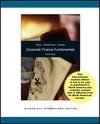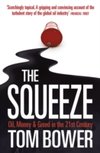
Freudian psychology
Source: Wikipedia. Pages: 114. Chapters: Id, ego and super-ego, Dream interpretation, Unconscious mind, Taboo, Libido, Rat Man, Psychoanalytic theory, Rorschach test, Anti-Oedipus, Object relations theory, Oedipus complex, Psychosexual development, Anna... Viac o knihe
Produkt je dočasne nedostupný
25.26 €
bežná cena: 28.70 €
O knihe
Source: Wikipedia. Pages: 114. Chapters: Id, ego and super-ego, Dream interpretation, Unconscious mind, Taboo, Libido, Rat Man, Psychoanalytic theory, Rorschach test, Anti-Oedipus, Object relations theory, Oedipus complex, Psychosexual development, Anna O., Beyond the Pleasure Principle, Repressed memory, Death drive, Paris psychoanalytical society, Psychodynamics, International Psychoanalytical Association, Splitting, Electra complex, Janine Chasseguet-Smirgel, Mikkel Borch-Jacobsen, Father complex, Repetition compulsion, Eros, Sergei Pankejeff, Herbert Graf, Karl Abraham, Healthy narcissism, Afterwardsness, Psychological projection, Rationalization, Uncanny, The Freudian Coverup, Displacement, Content, Phallic stage, Projective identification, Daniel Paul Schreber, Penis envy, Neo-Freudian, Feminism and the Oedipus complex, Ego ideal, Reaction formation, Dora, Sigmund Freud's views on homosexuality, Three Essays on the Theory of Sexuality, Freudian slip, Jointness, Signorelli parapraxis, Totem and Taboo, Paranoid-schizoid position, Sublimation, John Steiner, Latency stage, Spinoza: Practical Philosophy, Overdetermination, Oral stage, Transference neurosis, Anal stage, Free association, Introjection, Mortido, Emma Eckstein, Psychobiography, Narcissism of small differences, Destrudo, Anal expulsive, Irma's injection, Hamlet and Oedipus, Psychic apparatus, Preconscious, Castration anxiety, Kleinian envy and gratitude, Rapprochement, Anal retentive, Cathexis, Madonna-whore complex, New York Psychoanalytic Society, Genital stage, Studies on Hysteria, Primal scene, Delusion and Dream in Jensen's Gradiva, Blacky pictures, Polycrates complex, British Psychoanalytical Society, Individual analytical psychodrama, Psychosexual disorder, Decathexis, Ego reduction, Anticathexis. Excerpt: The Rorschach test (German pronunciation: ; also known as the Rorschach inkblot test, the Rorschach technique, or simply the inkblot test) is a psychological test in which subjects' perceptions of inkblots are recorded and then analyzed using psychological interpretation, complex scientifically derived algorithms, or both. Some psychologists use this test to examine a person's personality characteristics and emotional functioning. It has been employed to detect an underlying thought disorder, especially in cases where patients are reluctant to describe their thinking processes openly. The test is named after its creator, Swiss psychologist Hermann Rorschach. In the 1960s, the Rorschach was the most widely used projective test. In a national survey in the U.S., the Rorschach was ranked eighth among psychological tests used in outpatient mental health facilities. It is the second most widely used test by members of the Society for Personality Assessment, and it is requested by psychiatrists in 25% of forensic assessment cases, usually in a battery of tests that often include the MMPI-2 and the MCMI-III. In surveys, the use of Rorschach ranges from a low of 20% by correctional psychologists to a high of 80% by clinical psychologists engaged in assessment services, and 80% of psychology graduate programs surveyed teach it. Although the Exner Scoring System (developed since the 1960s) claims to have addressed and often refuted many criticisms of the original testing system with an extensive body of research, some researchers continue to raise questions. The areas of dispute include the objectivity of testers, inter-rater reliability, the verifiability and general validi...
- Vydavateľstvo: Books LLC, Reference Series
- Formát: Paperback
- Jazyk:
- ISBN: 9781157470885



 Anglický jazyk
Anglický jazyk 







